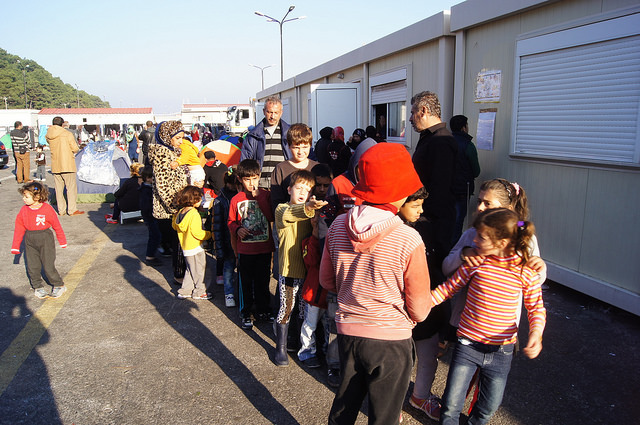
“[September 19, 2016] is the first time the United Nations General Assembly has called for a summit at the Heads of State and Government level on large movements of refugees and migrants and it is a historic opportunity to come up with a blueprint for a better international response. It is a watershed moment to strengthen governance of international migration and a unique opportunity for creating a more responsible, predictable system for responding to large movements of refugees and migrants.”
~
I recently read the New York Times article by Nicholas Kristof entitled, “Would you Save a Jew From the Nazis?”
This question challenged me in terms of what it takes to face such a crisis.
Would I save a Jew from the Nazis—or, for example, would I go out of my way to save anyone?
In my younger days, I wouldn’t have hesitated. Having read many memoirs of those who are today revered in Israel as Righteous Among the Nations, I was familiar with the efforts of many in the Nazi era who saved Jews and I would easily consider myself among the righteous.
Today however, I’m more realistic about who I am and truth be told, even though we are facing an astronomical refugee crisis of our own, I can’t answer whether I would save a Jew—or a Syrian Refugee, or an illegal Mexican or a Muslim. Or anyone—from anybody, including from our own government.
Today I am able to admit to myself that I really don’t know what I would do if I were faced with the moral question of whether I would save someone.
Many of those who did save Jews from the Nazis lost their own lives for their decisions. Would I run the risk of being killed myself? It’s easy to say yes, after all, I’m old, I’m going to die anyway. But I have never been faced with such a decision and really don’t know how my morals or character or ethics—or even my fears—would play out in extremis.
I only know what I have done in the past and I only know what I “say” I would do under such circumstances in the future—not what I would actually do.
However, with the world currently facing the largest immigrant/migrant crisis of modern times, maybe we will all be faced with this question soon.
Seriously.
What would you do?
Would you open up a bedroom and let an entire family of four move in?
Would you pay for everything. Everything?
Would you struggle with learning another language so that you could talk to those you are trying to help or would you expect them to learn yours?
Would you do their laundry, give them more clothes and prepare their meals?
Would you trust them to be in your house while you were gone at work all day?
Would you disapprove of how they talked to or how they disciplined—or didn’t discipline—their children?
Would you be offended by how they smelled, walked or behaved?
Would you be unable to accept the fact that your experience didn’t match your expectations?
Would you be uncomfortable knowing that what you ended up with was a bunch of people in your house who were too traumatized to feel anything, let alone feeling grateful?
Would you even think about all of these variables?
Or would you leave it all to the United Nations Commission of Refugees placement that is meeting today.
“On September 19, 2016 the United Nations General Assembly will conduct a day-long summit discussing “large movement of refugees and migrants” and the opportunity to develop a plan for a better international response.”
The truth is, more people will wait for the government to do something than will do something themselves.
Maybe this is a thought that we should reflect upon as world leaders gather in New York to discuss the current refugee crisis:
“In the last great refugee crisis, in the 1930s and ’40s, the United States denied visas to most Jews. We feared the economic burden and worried that their ranks might include spies. It was the Nazis who committed genocide, but the U.S. and other countries also bear moral responsibility for refusing to help desperate people.”
Maybe I should rethink the crowded bedroom, foreign language and foreign food issues I have raised.
Maybe I should make my decision about whether I would save a refugee based on one simple thing.
Would I be able to look at myself in the mirror if I waited for a governmental behemoth to make a decision about those in need while I failed to do, what I knew in my heart, needed to be done?
~
Author: Carmelene Siani
Image: flickr/jtstewart
Editor: Ashleigh Hitchcock


 Share on bsky
Share on bsky




Read 0 comments and reply